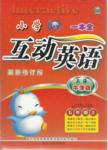题目内容
9. The city is very hot and damp in summer, (grow)
我成长的那个城市一到夏天就又热又湿。
9. where/in which I grew up

练习册系列答案
 互动英语系列答案
互动英语系列答案
相关题目
题目内容
9. The city is very hot and damp in summer, (grow)
我成长的那个城市一到夏天就又热又湿。
9. where/in which I grew up

 互动英语系列答案
互动英语系列答案